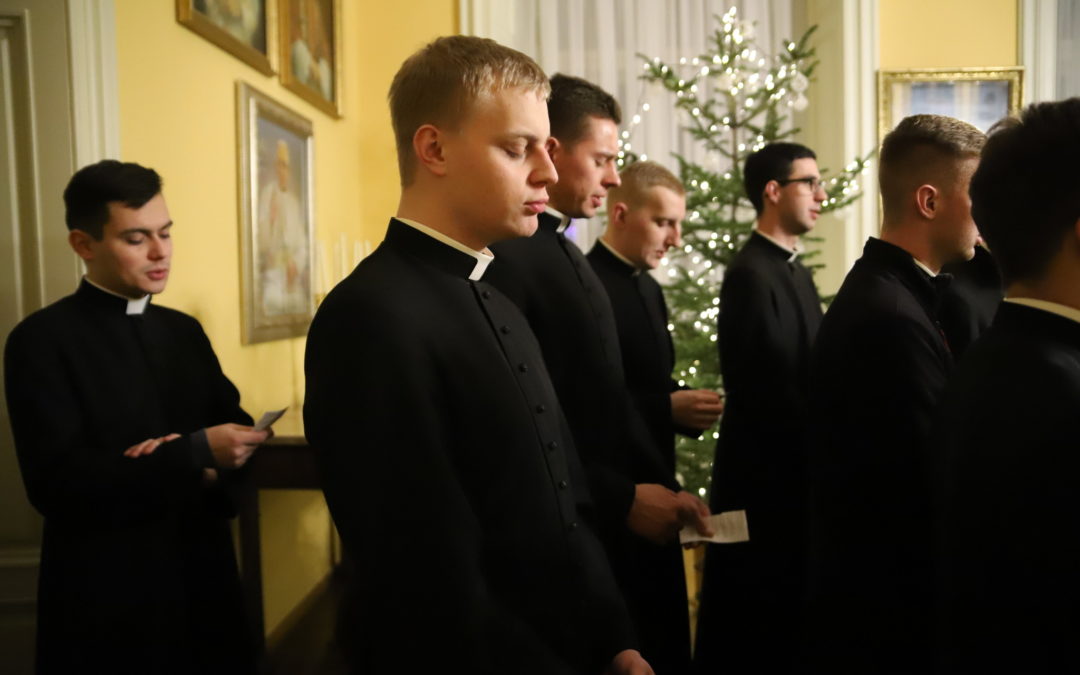One in four ordainments of Catholic diocesan priests in Europe takes place in Poland, according to data from the Polish Institute for Catholic Church Statistics.
But the number of new priests is falling overall, while there has been a rise in the number of people leaving the priesthood, leading the Catholic website Deon.pl to speak of a “true vocations crisis”.
Around 350 new Catholic priests have been ordained annually in Poland in the last few years, representing 26% of the total number in Europe, which was 1,272 in 2017, the last year for which data are available. The total number of ordainments worldwide in 2017 was 5,800.
In Poland and Europe, however, these numbers have been falling steadily since 2000, according to Deon.pl. The proportion of Polish ordainments in Europe has also decreased slightly, having grown to a level of 30% in 2013.
The overall number of diocesan priests around the world has been growing since 2000, reaching 281,000 in 2017. In Europe, however, the opposite trend has been observed, with numbers falling to 125,000, down from almost 141,000 in 2003 and 132,000 in 2011.
The other major trend highlighted by the data is a rise in the numbers of clergy leaving the priesthood. While the data vary widely from year to year, the global trend was a reduction until 2009, followed by a steady rise, with some 739 diocesan priests leaving in 2017.
In Europe too, more diocesan priests have been shedding their cassocks in the last decade, although a much higher number was recorded in 2012, with 222 cases, than the 146 from 2017, reports Deon.pl.
In Poland, however, some 73 individuals ceased to be diocesan priests in 2017 – exactly half the European total. The figure in 2012 was 54 – less than a quarter of the Europeans abandoning the priesthood – and the average between 2000 and 2017 in Poland was 56.
According to the Deon report, data from female and male Catholic religious orders in Poland tell a similar story. In 2000 there were 566 postulants seeking admission to convents in Poland, but by 2009 the figure had slipped to 251, and in 2017 it was just 177. Mother Jolanta Olech SJK, secretary general of the Conference of Major Superiors of Female Religious Orders, said that following a boom, the trend has the hallmarks of a crisis.
“We have often wondered why we do not attract more,” she said. “Certainly part of the reason for the fall in vocations is demography, cultural changes and a decline in faith, especially among the young. But perhaps we should also look at ourselves… Perhaps it should be an incentive to us to, as Pope Francis says, go into the margins…and look for those who nobody looks for.”
In monastic orders, where in October 2017 there were a total of 487 postulants and novices in Poland, there has also been a drop in vocations. But according to Father Janusz Sok, head of the Conference of Major Superiors of Male Orders, this is more a “return to the situation from the past” than “a catastrophic crisis”.
The Catholic church continues to be very influential and important in Poland, with data regularly showing that more than 90% of Poles declaring themselves to be Catholics. However, a 2018 survey by Pew Research indicated that church attendance among the youngest generation compared to the oldest is falling in Poland at the fastest rate in the world. Only 26% of those aged under 40 go to church every Sunday, compared to 55% of over-40s.
Data from @CBOS_Info show a sharp decline in religiosity among young Poles.
– 63% of final-year school pupils describe themselves as believers, down from 81% a decade ago
– 28% say they attend church on Sundays while 35% say they never go to church https://t.co/ALJj5J78uB
— Notes from Poland ?? (@notesfrompoland) July 22, 2019
Last month, a poll conducted by IBRiS on trust in institutions showed that the largest decline was recorded by the church, with a fall of over 13 percentage points, to 39.5%. The result reflects a period of crisis for the Catholic Church in Poland, which has faced criticism over its handling of child sex abuse as well as perceived interference in political and social issues.
A poll conducted in May last year by IBP found similar results, with 54% of Poles saying they do not trust the church and only 33% that they do.
Main image credit: Joanna Adamik/Archidiecezja Krakowska/Flickr (under public domain)

Ben Koschalka is a translator, lecturer, and senior editor at Notes from Poland. Originally from Britain, he has lived in Kraków since 2005.




















